How many types of feminism are there?
Types of feminism
How many types of feminism are there?
Feminism or feminist movement is known to promote equal rights between the sexes. Feminism today has a great diversity of tendencies of thought or focuses of interest, but the movement perceives itself as one. We are going to know the 20 most important types of feminism.
Philosophical feminism
 Simone de Beauvoir
Simone de Beauvoir
Philosophical feminism is one whose purpose is to reflect on the idea, concept and function of women within the social order. It also proposes the revision of the history of philosophy, from which the trace of women was erased. It has served as the foundation and justification for the different feminist movements.
Throughout history, figures such as Mary Wollstonecraft (forerunner), Flora Tristán, John Stuart Mill, Simone de Beauvoir, Clara Campoamor, María Laffitte and, currently, Celia Amorós and Amelia Valcárcel have stood out in philosophical feminism. other
Radical feminism
Radical feminism, also known as radfem , is a movement that emerged around the 1960s. Contrary to popular belief, it is quite far from extremism. It takes the name of radical from the word "root", since it intends to investigate the roots of the oppression of women. For this type of feminism, oppression "lies" in the socio-political and economic order, from which discriminatory practices such as racism and classism also derive.
Liberal feminism
Liberal feminism is one that seeks to promote the recognition and acceptance of women's capabilities in activities and jobs that have historically been associated with men. It deals with promoting inclusion laws that can promote equal opportunities.
Equality feminism
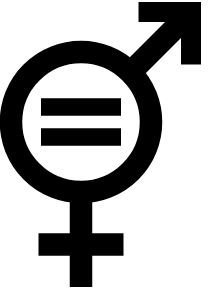 Gender equality symbol
Gender equality symbol
Equality feminism is committed to an activist agenda, and aims to promote social practices of equality between men and women, with the understanding that the differences between genders are strictly cultural. This supposes the pretense of consolidating a new social order based on democratic and egalitarian values.
You may also be interested in: Meaning of feminism .
Difference feminism
The feminism of difference starts from psychoanalysis and the concept of otherness. It considers the woman as an absolutely other being, that is, as a specificity that cannot be equaled to the man. It assumes the exploration of the unconscious as a mechanism for the construction of female identity.
Factual or scientific feminism
This type of feminism is based on evolutionary biology and psychology. He opposes the idea that the only differences between men and women are cultural, since he recognizes biological differences. However, it points out that such differences do not justify gender inequality and that, therefore, it is necessary to build a truly inclusive society in terms of rights.
Abolitionist feminism
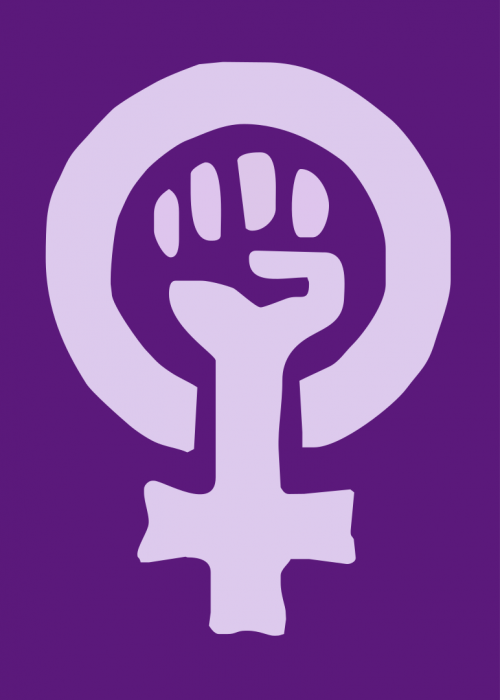 Symbol of the feminist movement in general.
Symbol of the feminist movement in general.
Abolitionist feminism is concerned with fighting the commercial and sexual exploitation of the female body and all forms of trafficking in women. Among its main objectives is the abolition of prostitution, from which it derives its name. But it is not limited to that. He also opposes gestational surrogacy (surrogacy or surrogacy) and pornography.
Marxist feminism
In socialist feminism, reflection on the modes of construction of power in society based on Marxist theory is fundamental. It emphasizes the material realities and economic conditions that can act as perpetuators of oppression. Marxist feminism takes into account the specific way in which it influences capitalism as the dominant system in the hegemony of patriarchy.
Postcolonial feminism

Postcolonial feminism is one that studies and reflects on the condition of women in postcolonial geopolitical spheres, where dependency relations with the dominant ex-metropolis have played a role in social construction. It highlights the adoption of the colonizer's thinking schemes, of which the population is usually unaware. Among them, racism, classism and machismo.
Anarcho-feminism or anarchist feminism
Anarcho-feminism is a political philosophy of the fight for gender equality that takes as a reference the postulates of anarchist ideology. From his point of view, anarchism is favorable to feminism inasmuch as it questions or opposes the different modes of social control, of which patriarchy is an expression.
Black feminism
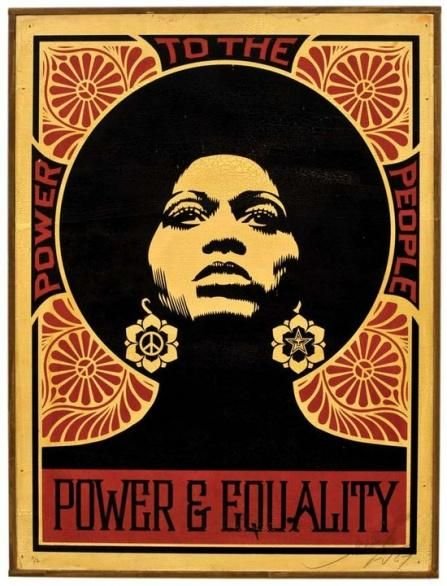 Black feminism poster
Black feminism poster
Black feminism takes into account the particular situation of racial minorities, whose discrimination and social marginalization are aggravating the subordinate condition of Afro-descendant women in the context of various societies. This feminism understands that racism, in addition to patriarchy, has an influence on the ordering of power and gender roles.
Male feminism
Male feminism, also known as allies of feminism or egalitarian men, is a men's movement committed to gender equality. It studies the effects of the culture of patriarchy and machismo, not only as a constructor of privileges based on gender, but especially as a deceptive mechanism that also restricts the freedom of men within the social order.
Lesbian feminism
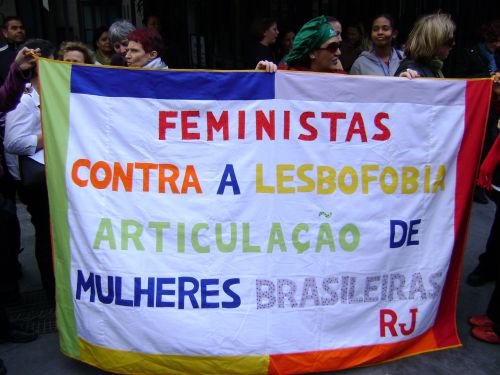
Lesbian feminism reviews the naturalization of sexual normativity, specifically of heterosexuality. Understand that the naturalization of heterosexuality favors the concept of social roles according to gender. For example, that women must take care of housework while men must be providers. Lesbian feminism applies the term heteronormative principles to this traditional conception of social roles by gender.
Cultural feminism
It encompasses different trends that propose the development of women within the framework of a counterculture of the feminine. He considers woman morally superior to man, and sees in her a special bond with nature because of her motherhood.
NOTE: We must clarify that, however, before this meaning, the expression cultural feminism referred to depoliticized feminism.
Separatist feminism
Separatist feminism bases part of its reflections on the theories of lesbian feminism. However, it is distinguished in that it proposes the separation of men and women as the only way for women to reach their potential. Within separatist feminism there are two tendencies: general separatism and lesbian separatism.
Cyberfeminism
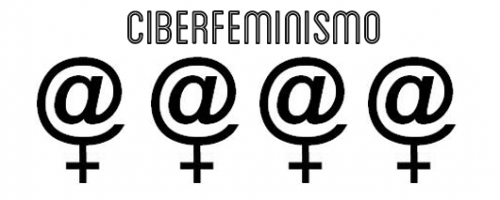
Cyberfeminism studies the way in which notions of gender are constructed in social networks and cyberspace in general, whose conditions and practices make it possible to circumvent the traditional conception of gender roles.
Ecofeminism
Ecofeminism relates feminism to the study and protection of the environment. It identifies an analogy between the indiscriminate exploitation of the ecosystem by capitalism, and the exploitation of the female body in the patriarchal order, in such a way that it considers capitalism and patriarchy the expression of the same phenomenon. In this sense, he understands that the matriarchal model is presented as a horizontal alternative.
Pro-life feminism
Pro-life feminism speaks out against abortion while endorsing the rest of the feminist agenda. Pro-life feminism argues that the principle of equality must pass through respect for the lives of the most vulnerable, which includes the unborn. Likewise, it questions the supposed advantages or convenience of abortion for women.
Transfeminism
 Symbol of transfeminism
Symbol of transfeminism
Transfeminism is based on queer theory , and states that not only gender is a sociocultural construction, but also biological sex. This perspective has come into conflict with other forms of feminism that, in fact, ignore this movement as feminist and call it transactivism .
Dissident feminism
- Update date: March 6, 2021.